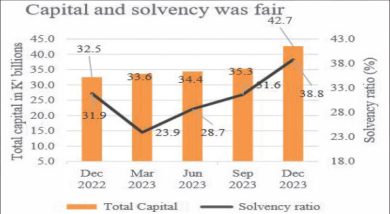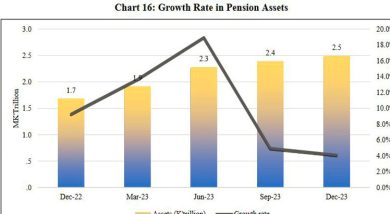Economic diversification, key to job creation
The sentiments made by United Transformation Movement (UTM) leader Saulos Klaus Chilima to create one million jobs if put to power in next year have been put on a spotlight with opposing views from sectors of the economy.
At the launch of his movement recently Chilima, in his 12-point plan which he delivered at a rally, promised the jobs which in essence means 83 000 jobs in a month and 2 700 jobs in a day.

But economic commentators and industry insiders argue that the fact that Malawi’s economy is not diversified with productivity still low is enough reason for the country to continue failing to produce jobs arguing plans to create more job in the economy should accompany economic diversification.
Labour issues commentator Hamilton Deleza in an interview in Tuesday noted that as small as it is, the economy of Malawi cannot create a million jobs saying the economy of Malawi should not be compared with other economies when making assumptions.
“It is good people are starting to be ambitious but at the end of the day ambitions must match with what is available in the country. Malawi ‘s Gross Domestic Products is among the smallest in the world and bearing that jobs cannot be created outside the parameters of the economy, for now, Malawi cannot afford 0ne million jobs in a year.
He said one million jobs should come with significant investments in the manufacturing and other social sectors arguing that in an economy like Malawi an average of 200 thousand and 250 thousand jobs in a year is possible not otherwise unless things are changed.
Speaking separately, Chancellor College economic professor Ben Kaluwa noted unless the country boosts productivity by diversifying the economy creating a million jobs is just some wishful thinking.
“Talk of diversifying the economy first before talking about creating such number of jobs. We are not saying creating a million jobs is not possible in Malawi but taking from the state of affairs, it could take more than what we think to achieve this,” he said.
On his part economic commentator Gilbert Kachamba said though possible, creating a million would require a lot more than focusing on a single component of the economy.
He said: “Creating a million jobs is no joke. We are talking about real employment not seasonal or casual and to achieve this there are a lot of supply side constraints that needs to be addressed to achieve that goal.
“For instance the energy sector need serous scrutiny because no serious can come to invest in the country in its current but also the education sector needs some reforms to feed the growing industry with the skilled labour.”
Taking his turn, an industry insider said creating jobs in the economy would require a robust private sector development arguing Malawi economy does not provide for such.
He said only through a private sector led growth, unemployment problem can be mopped.
“Making job creation plans without including private sector is unrealistic. Private sector in developing countries like Malawi can create jobs faster than the government.
“However the jobs are created when private sector actively participates and is accorded the right environment to operate. Therefore if private sector is given the right conditions to thrive, we are talking of a stable and fair macroeconomic environment as well as stable and adequate electricity supply, more jobs will be created but of course not one million because it takes more than just the private sector to have a more jobs in an economy,” he said.
But spokesperson for the movement Joseph Chidanti Malunga in an interview on Tuesday maintained the position saying the party believes it can use the available resources in the country to create jobs.
“We know that reducing the amount of money that goes into people’s pockets will certainly make a difference in the country.
“The problem we have in this country is that perpetually, we line up projects that we would do but they are never done. We have had projects that have been appearing in the national budgets but are never implemented. Money is continuously allocated to projects but nothing is done. What we are saying is that we are going to build roads, hospitals and other infrastructure and we know this will translate in jobs,” he said.
He said Malawi is just like any other country and even better because it is a developing country which presents it opportunity create even more jobs.
“As a country developing almost every district require huge infrastructure developments such as hospitals. It is for this reason that we see an even better opportunity to create more jobs in the process of carrying out such development projects,” he said.
Malawi has been facing a labour crisis with National Statistical Office figures showing that unemployment rate in Malawi is at 23 percent, according to a labour survey conducted in 2015.
In neighbouring Zambia, Tanzania and Zimbabwe, unemployment is also an issue though relatively lower compared to Malawi.
For Instance in Tanzania unemployment stands at around 10.3 percent as at 2015 , 7.79 percent in Zambia and in Zimbabwe it is at 5.6 percent.
But according to the 2018 Annual Economic Report Malawi has a total workforce of 5.5 million people. The private sector is however reported to account for more jobs in the economy at 300 000 compared to 200 000 jobs in the public sector.
Government is however currently looking into solutions to ease the problem as stated in the 2018/19 national budget statement in which minister of economic planning and development Goodall Gondwe announced government will include ambitious youth programmes that are primarily intended to reduce youth unemployment.
He said the program has been designed to recruit 5 000 youth aged between 18 and 30 years, selection of which will be based on qualifications and they will be placed in various ministries, departments and local councils.





